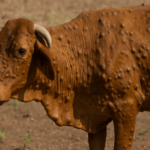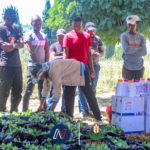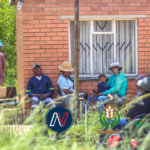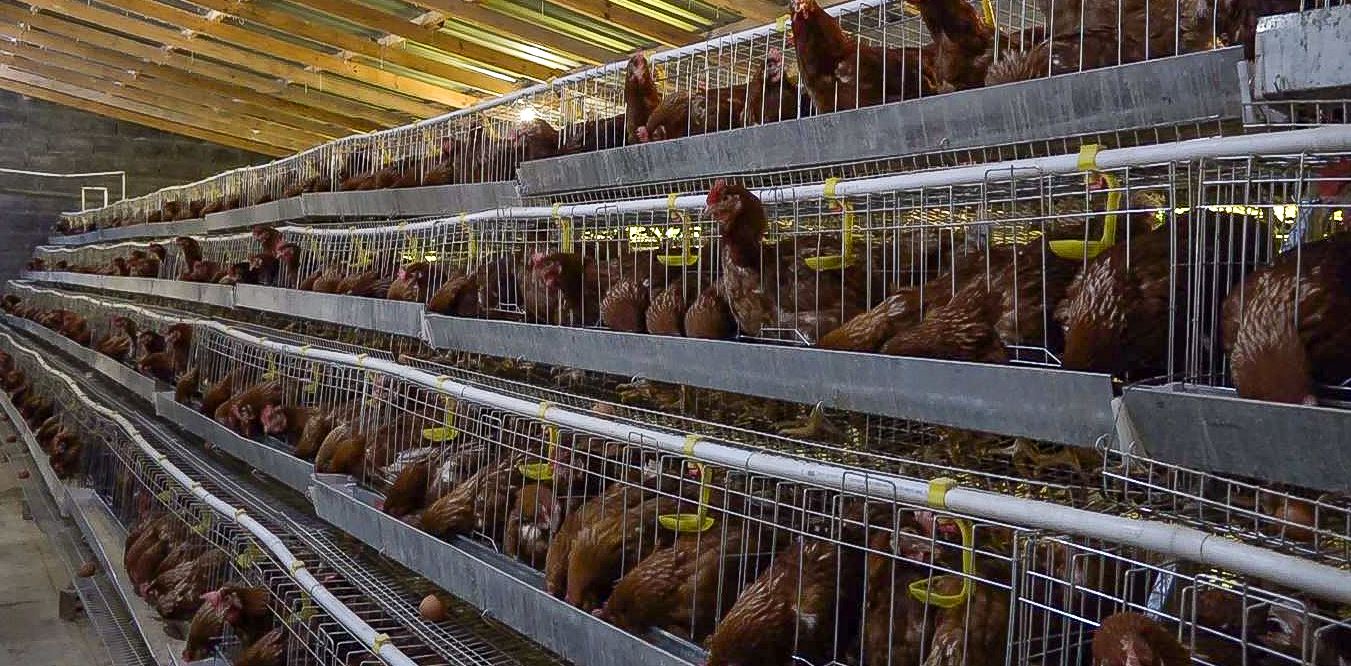By Seahlolo Reporter
The gentle rhythm of clucking hens and the hum of a self-pumping borehole tell the story of ambition, resilience and transformation in the village of Phaphama, in the distric of Botha-Bothe.
It is here where Linkeng Mabitje, founder of Mabita Poultry Farm, is steadily building what she calls her “Layer Empire”, a dream that began with love, patience and faith in the power of agribusiness.
“I developed an interest in egg production in 1995,” she recalls, her tone filled with nostalgia.
She adds, “My mother-in-law was a poultry farmer, and I admired how she earned her living from chickens. But at that time, I was focused on education. I wanted to be highly educated and work in the corporate world.”
Her dream came true, for a while at least.
Linkeng worked in Pretoria, South Africa, where she rose through the ranks and reached the peak of her career. But, after years in the white-collar world, she felt a stirring for something more meaningful and sustainable.
“When I retired, I started different businesses, from salons to other ventures, but something was still missing,” she says.
“I wanted to build something that would last.”
That longing led her back home to Lesotho and back to the inspiration of her mother-in-law.
“I had seen poultry farming sustain her for decades. I wanted to follow in her footsteps, this time with real commitment.”
In 2018, Linkeng built her first poultry structure and took over 500 cages from her mother-in-law.
Three years later, in May 2021, she brought in her first 2,000 layers and officially launched Mabita Poultry Farm.
Her mentor — her mother-in-law — was there every step of the way, offering guidance and experience drawn from years in the business.
“She made me understand that poultry farming is a full-time responsibility.
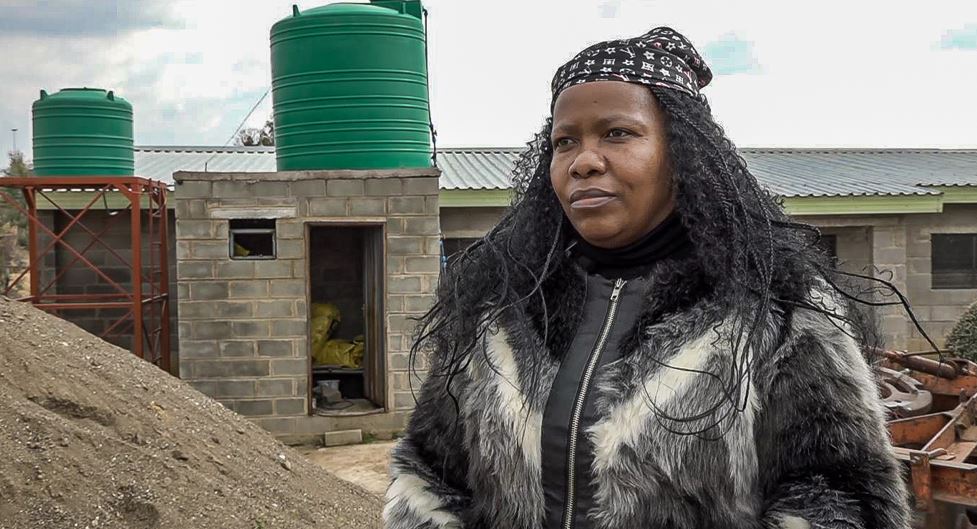
“The birds depend on your attention, discipline and consistency to best perform,” Linkeng explains.
Just when she was trying to scale up, fate introduced her to the Smallholder Agriculture Development Project II (SADP II) which rewrote her script of success.
“I was approached by a service provider from SADP II,” she recalls.
“At first, I didn’t know what it was all about. I had never heard of the project before, but I was open to knowing more about them.”
After a detailed explanation, she realised it was exactly what her farm needed, an opportunity to grow.
With the help of the service provider, she prepared her first application and cast her net.
“I had no idea I would be successful,” she says with a smile.
When I received the news that I had been approved for funding, I felt a huge weight lift off my shoulders. For a long time, I carried the dream alone but SADP II came as a helping hand from heaven.”Her first interaction with SADP II was through a training workshop, which she describes as a turning point.
“Before that, I had no formal training in poultry farming. Everything I knew came from experience and observation,” she says.
“But, the workshop opened my eyes. I realised I was sitting on a diamond, a good business that just needed proper management.
“I learned the importance of record-keeping, disease control and overall animal welfare. It completely changed my approach,” she says.
With the SADP II grant, Mabita Poultry Farm expanded its infrastructure and moved to creating employment.
“My biggest need was more cages to increase the capacity. I wanted to increase the number of chickens and improve production efficiency,” she explains, adding that the SADP II helped her add more cages and also provided a new self-pumping borehole.
“Our old water system required manual pumping, which was time-consuming and unreliable. The new system made our operations smoother and less labour-intensive,” Linkeng states.
Today, Mabita Poultry Farm boasts 2,000 layer birds that produce eggs all year-round.
“There has never been a time when the farm had no chickens,” Linkeng says proudly.
“As soon as one batch reaches its cycle, another comes in. The production wheel keeps turning.”
This growth, she says, has created employment opportunities for the local community.
“I now have a team of four, two men who clean and feed the chickens and two women who collect and clean the eggs. I handle sales and administration of the business and thanks to the SADP II, this farm now supports several families.”
Linkeng admits that managing the business side of farming was her greatest challenge.
“Poultry farming is not just about feeding chickens; it’s about managing numbers, planning cash flow and maintaining consistency. Before the SADP II training, I used to struggle with keeping track of sales, expenses and feed quantities. Now, I run my business with structure and confidence,” she says.
The workshops, she notes, didn’t just offer technical knowledge but they instilled a business mind-set.
“SADP II has shaped the way I think about farming. It has decluttered my thoughts and perceptions of it. Mabita Poultry Farm is not a side hustle, it is a full-fledged business.
“That shift in perspective has made me more disciplined and goal-oriented,” she beams.
The transformation has not gone unnoticed as young farmers now looking to Linkeng for guidance.
“I have become a mentor of sorts,” she says modestly.
“Many people, especially the youth, visit my farm to learn about egg production. I always share the knowledge I have gained from the different SADP II workshops throughout this journey.”
Her influence has had tangible results, she notes, citing several young people she has mentored have applied for and received SADP II grants themselves.
“Seeing them succeed makes me so proud. I am convinced that farming can change lives, but we need to change our mind-set first to actually make it. Agriculture is not for the desperate, it’s for the determined,” she stresses.
Linkeng’s journey is far from over, she envisions building a large-scale, automated egg production facility with up to 50,000 layers.
“SADP II helped me realise my potential, now my goal is to establish a high-tech, fully automated poultry operation that increases efficiency, profit and food security for Lesotho while positioning me as a trailblazer,” she says confidently.
Her dream extends beyond business growth.
She aims to produce high-quality eggs for local supermarkets and eventually expand into regional markets.
“When I look at the quality of eggs we produce at Mabita Poultry, I see potential. The demand for eggs is high and I want to grow to a level where I can influence market pricing while maintaining top quality.”
As a woman who has carved her path in a male-dominated sector, Linkeng is passionate about seeing more women venture into agribusiness.
“Egg production is one of the best financial investments a woman can make. It doesn’t just put food on the table, it gives women financial independence and the ability to support their families,” she emphasises.
With fire in her voice and gratitude in her heart, she adds; “SADP II gave me the foundation, but the dream was always mine. Now I am building something that will last for generations. Mabita Poultry is not just a farm — it’s a legacy in the making.”
Sponsored by


